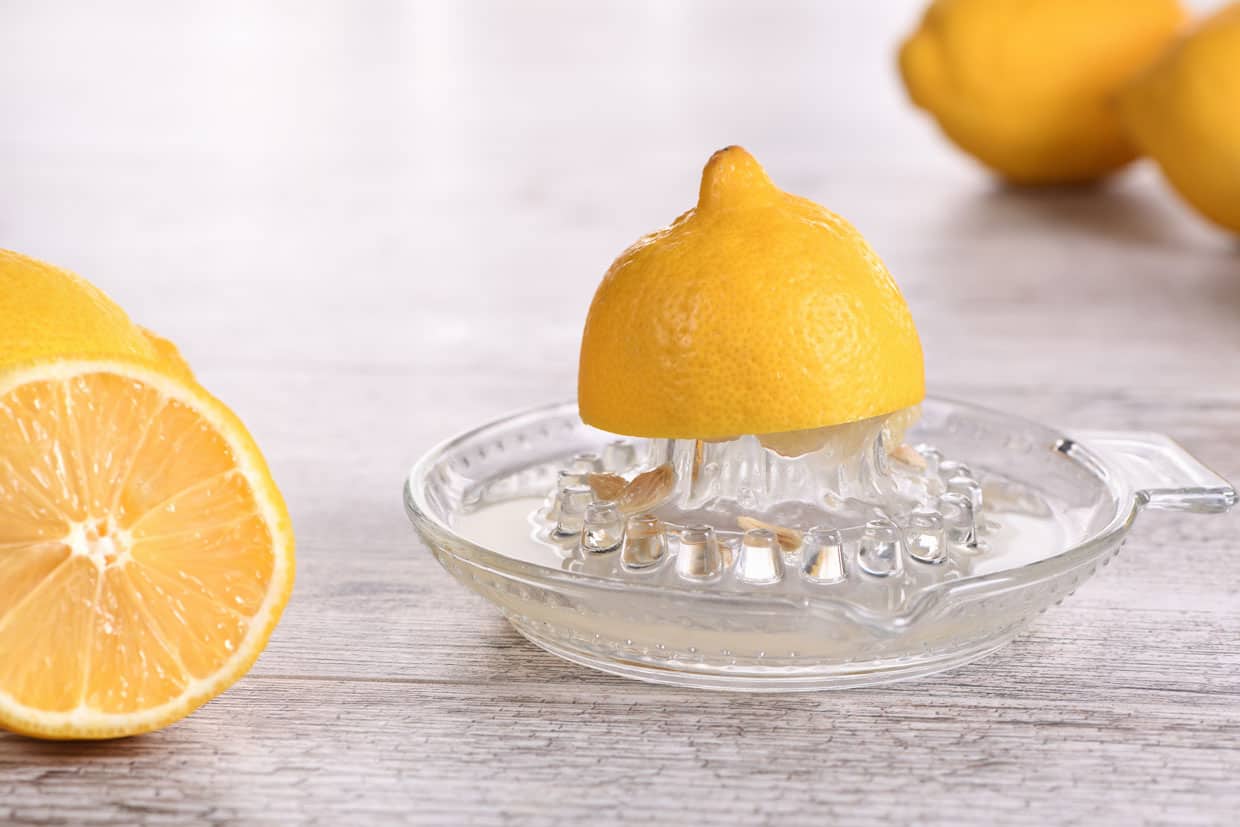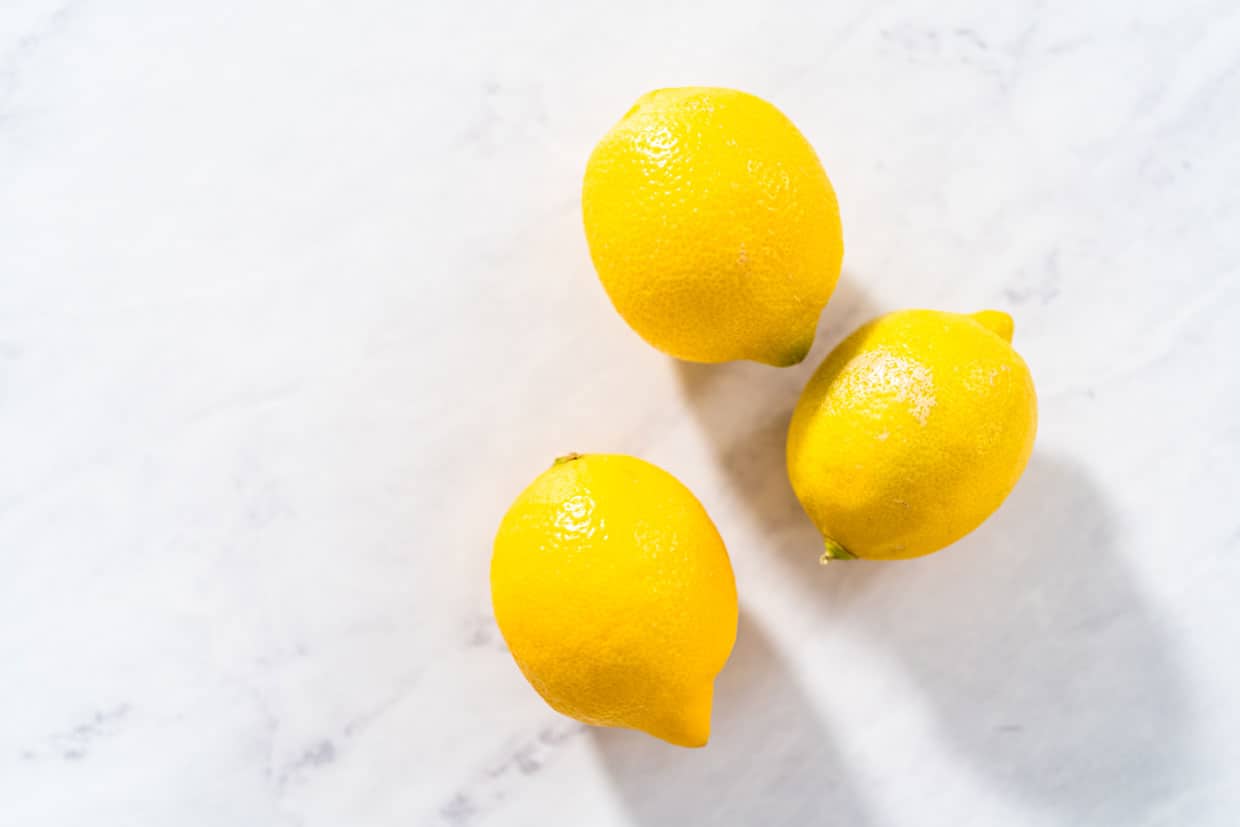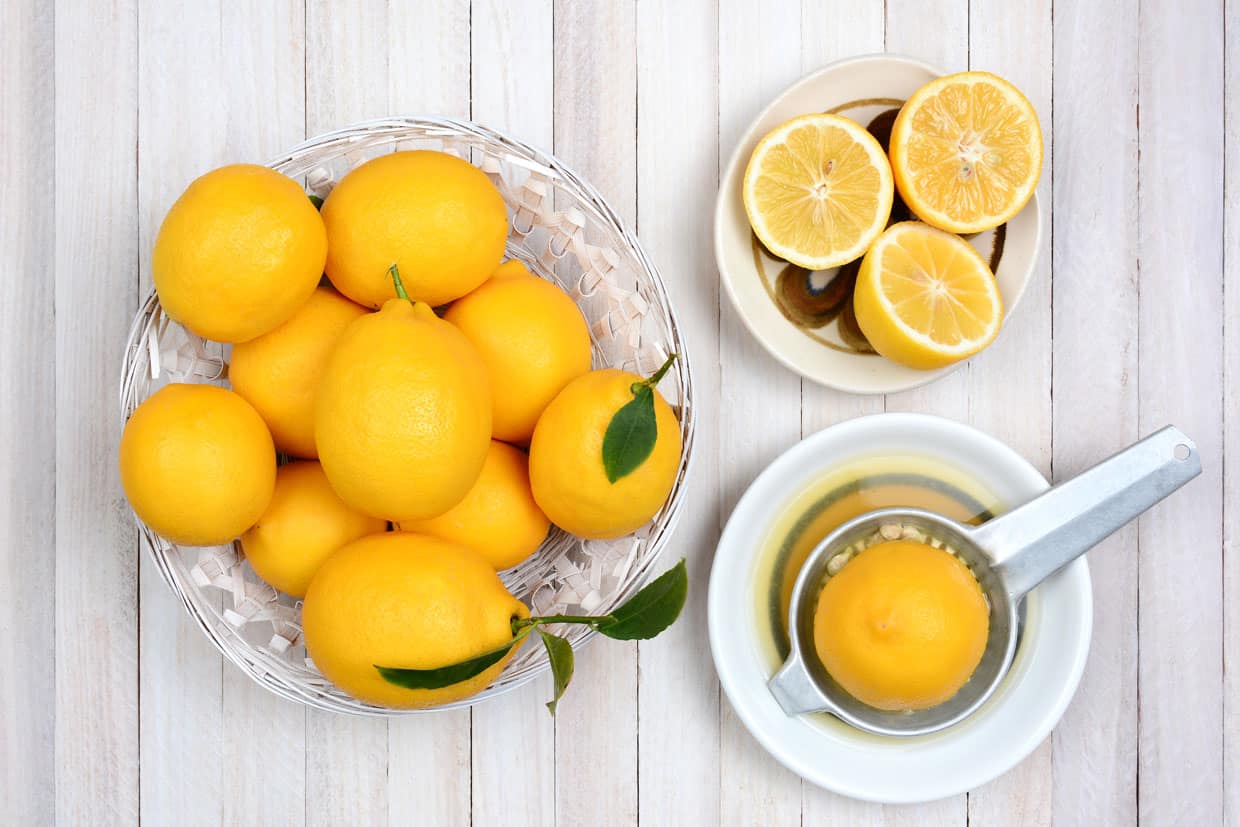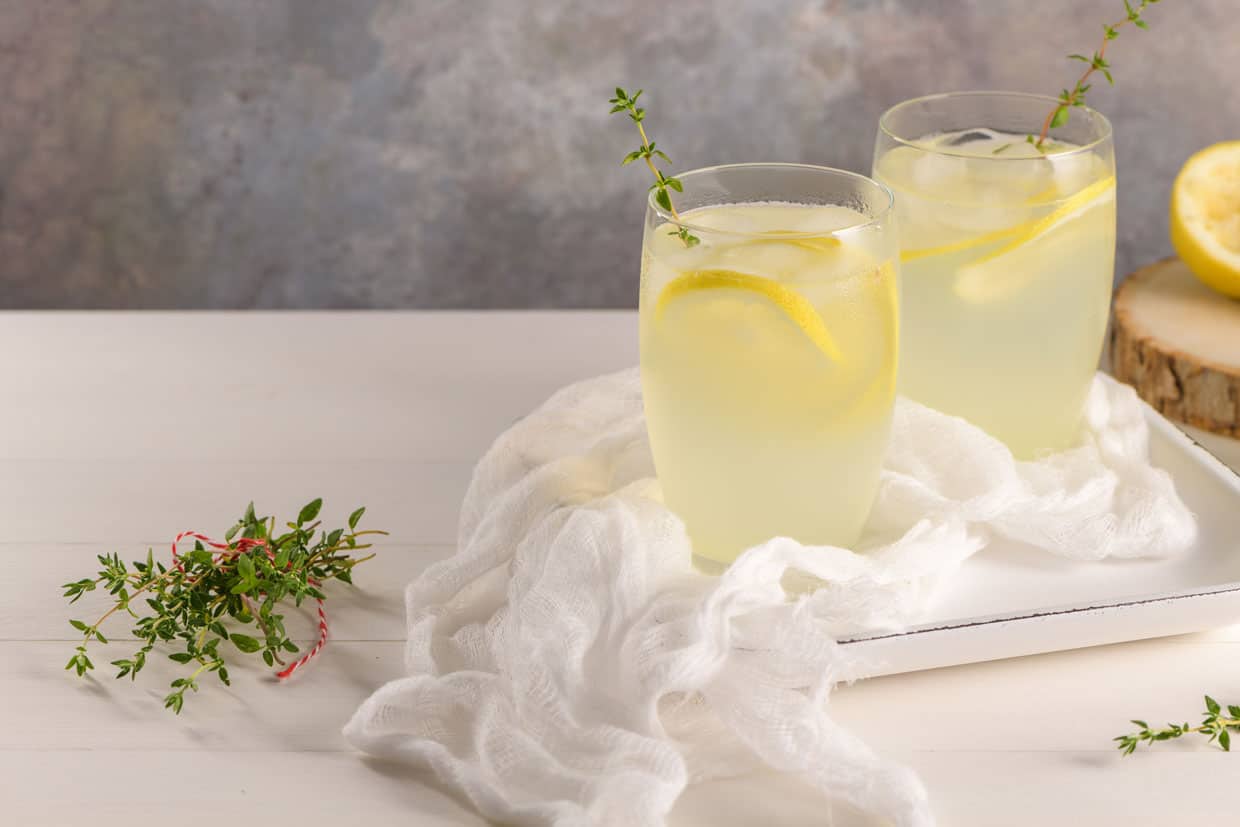Whether you’re a baker or a cocktail maker, lemon juice is a must-have in the kitchen. Learn how to squeeze out every last drop, and how much juice is in one lemon so you can always have enough on hand.

Bright and zesty, lemons bring the best sweet-and-sour flavor to everything from drinks to desserts.
Bottled concentrate is convenient when you’re out of citrus fruit, but if you have the time and means to juice fresh lemons, the end result will be so much better.
You won’t be sorry: The juice and zest of fresh lemons make a big difference in drinks like lemon water and baked goods like lemon drop cookies.
That’s because lemon juice concentrate tends to be more pungent and tart than fresh juice. Real lemons will have a more robust, natural flavor.

Best lemons to juice
Regular lemons from the grocery store are perfect for juicing. You can also use other types of lemons such as Meyer lemons, which are a hybrid between regular lemons and Mandarin oranges.
Meyer lemons tend to be a bit sweeter, while a standard lemon is a bit more sour.
When choosing lemons to juice and calculating how much lemon juice you need, look for lemons that are approximately the same size. It’s also okay if they are a little bruised or scratched up.
“The best lemons to juice aren’t always the prettiest ones. Look for lemons that feel relatively heavy and have a bit of give to them,” said Michelle Price of Honest and Truly.

How to juice lemons properly
First, it’s important to use room-temperature lemons when juicing. While keeping lemons in the fridge helps them last longer, refrigerated citrus is more difficult to juice.
“Before you juice them, put the lemons in the microwave for just 10 to 15 seconds, and then roll them on your counter before you cut them open. These two simple steps allow the lemon to release much more juice,” Price said.
You can also place the lemons in a bowl of warm, but not hot, water for about 30 minutes before you plan to juice them, or leave them at room temperature for a couple of hours. Whatever method you use to warm up your lemons, be sure the lemons are cool enough to handle before slicing into them.
If you need to zest the lemons, do that before juicing. You can use the peels to make homemade limoncello for a delicious treat. It’s a great way to salvage every part of the lemon.
When you are ready to juice, there are a few methods you can try. Squeezing by hand doesn’t yield as much juice as one that uses pressure or friction, so use one of these methods to get out every last drop:
- Hand juicer: These are usually glass or plastic devices with a pointed, ribbed center designed for shredding the flesh of the fruit. They create a lot of pulp in addition to releasing the seeds, so the juice will likely need to be strained depending on your recipe.
- Citrus reamer: This is a handheld, usually wooden tool with ribbed edges designed for twisting inside the lemon to release the juices.
- Citrus squeezer: Hand squeezers allow you to use pressure to squeeze out the juice without seeds. Be sure to place the lemon half upside down for a cleaner squeeze.
- Electric juicer: Electric juicers are like hand juicers, only they do the work for you. If you have a lot of lemons to juice, investing in one of these is a game changer.
- Juice press: With juice presses, you can juice the entire lemon, peel and all. However, the inclusion of the peel can make the juice more bitter.
All of these methods can work for juicing limes, oranges and grapefruits, as well.
“I use a citrus juicer to juice lemons because it’s efficient, extracts the maximum amount of juice and conveniently separates the pulp and seeds,” said Sara Nelson of Real Balanced.
How much juice is in one lemon?
In general, a single lemon typically contains two to three tablespoons of juice.
But because lemons tend to vary in size, a good rule of thumb is to estimate that most lemons will contain about two tablespoons..
Juicing just one lemon is ideal for making drinks. Lemon juice is an excellent cocktail mixer, famously being used in drinks like the whiskey sour.

How many lemons do you need?
If you need to juice more than one lemon, say for making a big batch of homemade lemonade, use this guide to help you calculate how many lemons to buy.
- ¼ cup lemon juice: approximately 2 lemons
- ½ cup lemon juice: approximately 4 lemons
- 1 cup lemon juice: approximately 8 lemons
- 2 cups lemon juice: approximately 16 lemons
It is a good idea to purchase one or two extra, just in case your lemons are smaller or don’t contain a full two tablespoons of juice.
How to store lemon juice
If you juiced too much or just want to squeeze some extra lemon juice to use later, you can store it in a jar or other food-safe, airtight container in the fridge.
You can also freeze lemon juice. Spoon one tablespoon into each cavity of an ice cube tray and freeze overnight. Store in a freezer-safe zip-top bag, then thaw at room temperature or defrost in the microwave to use the juice in a recipe.
Based in Charlotte, N.C., Susannah Brinkley Henry is the cocktail content creator behind the blog Feast + West. Her work has been featured in Southern Living, Oprah Daily, Buzzfeed and more. In 2019, her website was a finalist in the Saveur Blog Awards for Best Entertaining Blog. As a professional graphic designer, photographer, writer, and recipe developer, Susannah helps home bartenders and drink enthusiasts level up their cocktail skills.